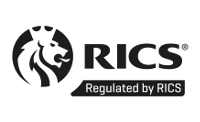As of April 2018 landlords cannot agree a new lease for a property with an EPC rating of less than grade E. From 2023 the regulations stipulate that no landlord can have an existing lease in place with a rating of less than grade E.
Whilst there is a soft start to this legislation the 2023 trigger is more onerous and if landlords are caught letting a property with an EPC of less than a grade E then they will be fined and put onto a ‘name and shame register’. The proposed fines will be punitive and will depend on the property but figures being suggested range from £5000 to £150,000.
Landlords should also be warned that they should not be complacent if their property currently achieves and EPC grade E or above as some may not be accurate. Whilst EPC’s are not new, historically some have been poorly prepared. Such EPC’s have included too many assumptions and default values which could have had a negative impact on the EPC results making them inaccurate. In addition, whilst EPC’s last for 10 years, those currently over 7 years old are typically ignored by legal teams and those over 5 year are deemed to be unreliable. This is due to the fact that the algorithms used to calculate the EPC’s have been adjusted to reflect changes in Building Regulations and current industry standards so this impacts on EPC results achieved. The outcome of such changes is that a property with an EPC grade D prepared over 7 years ago, if retested, may for example only now attain a grade F and fail to achieve the minimum standard. Such failures to achieve the minimum EPC may not only be because the calculations have changed but also because building elements, in particular building services installations, have become less energy efficient with age which effects the EPC results.
Whilst reaching and EPC grade E is the critical benchmark for the foreseeable future this level may be lifted to a higher grade in years to come. It is therefore recommended that early consideration be given to plan for the essential works required to achieve the minimum requirements to comply with legislation.
There are exemptions for compliance with the standards but these are limited. This legislation has significant implications for landlords who are responsible for ensuring their buildings comply with the legislation so early action is advisable.
